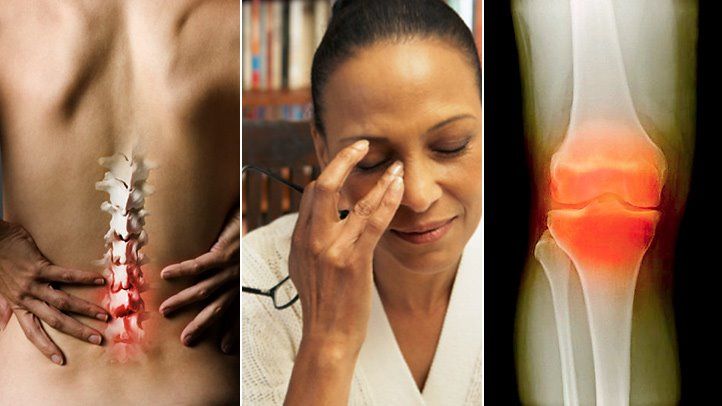What Is The Importance Of Pain Relievers In Managing Discomfort?

Pain is a common experience for individuals of all ages and backgrounds, and it can greatly impact one’s quality of life. Pain relievers, also known as analgesics, have been developed to alleviate discomfort and improve overall well-being.
This article aims to explore the importance of pain relievers in managing discomfort. The objective of this article is to provide an objective and impersonal analysis of the various types of pain relievers, their mechanisms of action, and their efficacy in addressing different types of pain.
Additionally, this article will discuss the role of pain relievers in relieving headaches, migraines, muscle and joint pain, chronic conditions, inflammation, and swelling. Furthermore, this article will highlight the potential benefits of pain relievers in improving mental well-being.
Lastly, this article will emphasize the significance of incorporating pain relievers into a healthy lifestyle for optimal pain management.
Key Takeaways
- Pain relievers are crucial and key in managing discomfort.
- Combining pain relievers with self-care techniques such as exercise, nutrition, and stress management significantly improves discomfort management.
- Regular exercise, proper nutrition, and stress management are beneficial in managing discomfort.
- Pain relievers contribute to an improved quality of life and are necessary for managing discomfort.
Understanding the Types of Pain Relievers
Understanding the types of pain relievers is crucial in effectively managing discomfort and providing relief. There are various types of medications available for pain relief, including both prescription and over-the-counter options.
Over-the-counter pain relievers are widely accessible to the general public without a prescription. These medications, such as acetaminophen and nonsteroidal anti-inflammatory drugs (NSAIDs) like ibuprofen and naproxen sodium, are commonly used to alleviate mild to moderate pain. They work by blocking the production of certain chemicals in the body that cause pain and inflammation.
Prescription pain relievers, on the other hand, are typically stronger and are prescribed by healthcare professionals for more severe forms of pain. These may include opioids, such as codeine and morphine, which bind to specific receptors in the brain and spinal cord to reduce pain sensations.
Overall, understanding the different types of pain relievers allows individuals to make informed decisions regarding their pain management and find the most suitable option for their specific needs.
Relief from Headaches and Migraines
Headache and migraine sufferers often rely on pain relievers to alleviate their debilitating symptoms, offering a much-needed respite from throbbing pain and sensory overload. While there are various headache remedies and natural migraine relief options available, pain relievers provide immediate relief and can be easily accessible. The importance of pain relievers in managing discomfort caused by headaches and migraines cannot be overstated.
Here are five reasons why pain relievers play a crucial role in providing relief:
- Rapid relief: Pain relievers work quickly to alleviate the intensity of headaches and migraines, allowing individuals to resume their daily activities.
- Increased functionality: By reducing pain and discomfort, pain relievers enable individuals to function better and maintain productivity.
- Improved quality of life: Pain relievers offer relief from the physical, emotional, and cognitive symptoms associated with headaches and migraines, enhancing overall well-being.
- Accessible and convenient: Pain relievers are readily available over-the-counter and can be easily obtained from pharmacies and stores.
- Cost-effective: Compared to other headache remedies and natural migraine relief options, pain relievers are often more affordable and accessible to a wide range of individuals.
Alleviating Muscle and Joint Pain
Alleviating muscle and joint pain is essential for individuals seeking relief from debilitating discomfort and limited mobility. Muscle and joint pain can arise from a variety of causes, including injury, overuse, or medical conditions such as arthritis.
Pain relievers play a crucial role in managing this type of discomfort by reducing inflammation and providing temporary relief. However, it is important to note that pain relievers should not be the sole method of managing muscle and joint pain.
Other approaches, such as muscle recovery techniques and natural remedies, can be incorporated to complement the use of pain relievers. These may include stretching exercises, physical therapy, heat or cold therapy, and the use of herbal supplements.
By combining different strategies, individuals can effectively alleviate muscle and joint pain and improve their overall well-being.
Managing Chronic Conditions
Chronic conditions require a multifaceted approach to effectively control symptoms and improve the quality of life for individuals affected by them. Managing chronic pain is a crucial aspect of this approach. Pain relievers play a vital role in alleviating discomfort associated with chronic conditions, allowing patients to function and engage in daily activities more comfortably. To emphasize the importance of pain management techniques, consider the following table:
| Pain Management Techniques |
|---|
| Medications |
| Physical Therapy |
| Psychological Support |
Medications, such as nonsteroidal anti-inflammatory drugs (NSAIDs) or opioids, can help reduce pain levels and provide relief. Physical therapy aims to improve mobility, strength, and flexibility, reducing pain and enhancing functional abilities. Psychological support, including counseling and cognitive-behavioral therapy, helps individuals develop coping mechanisms and address emotional aspects of chronic pain. By incorporating these techniques, individuals with chronic conditions can better manage their pain, leading to an improved overall quality of life.
Reducing Inflammation and Swelling
Reducing inflammation and swelling is a crucial aspect of managing chronic conditions and can significantly improve the overall well-being of individuals affected by them. Pain relievers play a vital role in achieving this goal. By reducing pain sensitivity, these medications alleviate discomfort and enhance the quality of life for patients with chronic conditions.
Inflammation and swelling can hinder the healing process, leading to prolonged discomfort and limited mobility. Pain relievers, such as nonsteroidal anti-inflammatory drugs (NSAIDs), work by inhibiting the production of inflammatory chemicals, thereby reducing swelling and promoting faster healing. This not only helps alleviate pain but also restores functionality and enhances the ability to engage in daily activities.
By incorporating pain relievers into the management of chronic conditions, individuals can experience improved pain control, reduced inflammation, and enhanced overall well-being.
Improving Mental Well-being
Improving mental well-being is essential for enhancing overall quality of life and fostering emotional resilience in individuals affected by chronic conditions. Pain relievers play a crucial role in this aspect by not only alleviating physical discomfort but also by improving mental health.
Here are three ways in which pain relievers contribute to improving mental well-being:
- Improving focus: Chronic pain can significantly impact cognitive function, making it difficult to concentrate and stay focused. By reducing pain, pain relievers can help individuals regain their ability to concentrate and improve their overall cognitive performance.
- Reducing stress: Living with chronic pain can be incredibly stressful, leading to anxiety and depression. Pain relievers can help reduce pain-related stress, providing individuals with a sense of relief and promoting a positive mental state.
- Enhancing emotional well-being: Chronic pain can take a toll on one’s emotional well-being, often leading to feelings of frustration, sadness, and irritability. By mitigating pain, pain relievers can help individuals experience emotional relief, allowing them to better cope with their condition and maintain a more balanced mental state.
In conclusion, pain relievers not only alleviate physical discomfort but also contribute to improving mental well-being by enhancing focus, reducing stress, and promoting emotional stability.
Incorporating Pain Relievers into a Healthy Lifestyle
Incorporating pain relievers into a healthy lifestyle involves integrating medication into a comprehensive wellness routine, ensuring optimal physical and mental well-being.
Pain relievers play a crucial role in managing discomfort and promoting overall health. They are commonly used to alleviate pain caused by various conditions such as headaches, arthritis, and injuries. By reducing pain and inflammation, pain relievers enable individuals to engage in daily activities without hindrance. Moreover, these medications can improve mental well-being by alleviating the psychological distress often associated with chronic pain.
However, it is essential to use pain relievers responsibly and under the guidance of a healthcare professional. Incorporating pain relievers into a healthy lifestyle also involves practicing self-care techniques such as regular exercise, proper nutrition, and stress management. By combining pain relievers with these lifestyle choices, individuals can effectively manage discomfort and enhance their overall quality of life.
Frequently Asked Questions
Are pain relievers addictive?
Pain relievers can be addictive, leading to dependence and abuse. Long-term use of pain relievers may result in adverse effects such as tolerance, withdrawal symptoms, and potential damage to vital organs.
Can pain relievers be used safely during pregnancy?
During pregnancy, it is important to consider alternatives to pain relievers due to potential risks and precautions. Pain relievers should be used cautiously, as some may have adverse effects on the developing fetus.
What are the potential side effects of pain relievers?
The potential side effects of pain relievers include gastrointestinal issues, cardiovascular problems, and kidney damage. It is important to consider alternative treatments to minimize long-term effects and promote overall well-being.
How long does it take for pain relievers to start working?
The time it takes for pain relievers to start working varies depending on the type of pain relief medication used. It is important to choose the right pain reliever based on its effectiveness and suitability for the specific type of pain.
Can pain relievers be used in combination with other medications?
Pain relievers can be used in combination with antibiotics and antihistamines. This combination can help manage discomfort by targeting different mechanisms of pain and addressing multiple symptoms simultaneously.









